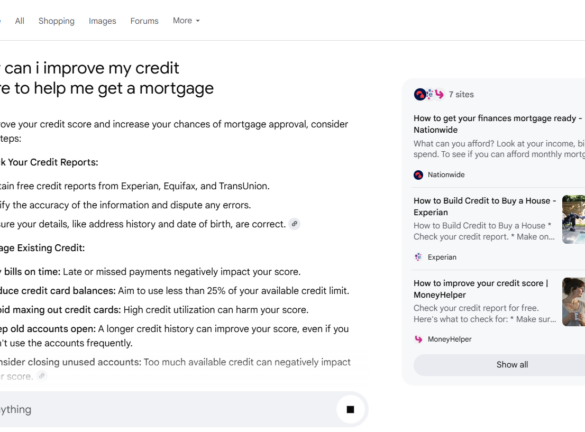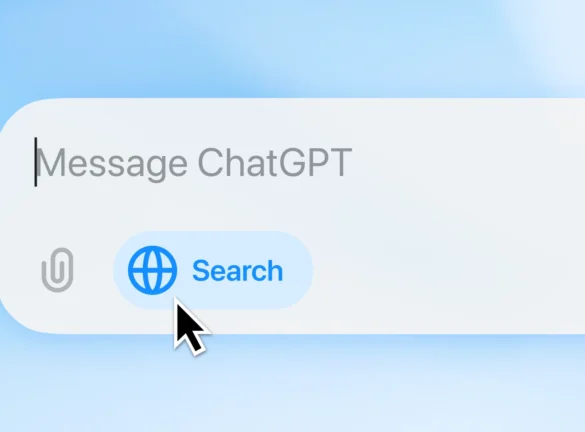
Are you not entertained? The third E in Google’s E-E-A-T acronym
Probably my most extra blog title yet – I promise the link isn’t completely tenuous! At London SEO XL Meetup earlier this May, Simon Schieders interviewed Barry Schwartz, and one of the answers Barry gave is the reason why this article has come about (and why I’ve gone with my silly title).
Barry predicted that Google would introduce a third ‘E’ to the ‘E-E-A-T’ acronym from their quality guidelines: ‘entertainment’. Whether or not this will be the case remains to be seen, but it made a whole lot of sense to me. Here’s what’s already covered with E-E-A-T (and no extra ‘e’) and why, starting with the ‘T’ for trust.
Trust
As SEOs, we’re looking to showcase trust factors because all of the other letters feed into trust. In March, Syphaï Bay’s talk at Women in Tech SEO really resonated, and Syphaï summed up a significant flaw with AI-generated content.
Trust factors revolve around sources – i.e., who produced the information. A serious weakness with any information we receive from ChatGPT (or any AI) is that it has no sources. Or rather, it does but we don’t know who those sources are. If you don’t know where the information you’re using has come from, how can you trust it?
We wouldn’t trust a faceless stranger to treat our illnesses or take care of our children. So do not for the love of SERPs use AI-generated content on ‘your money, your life’ topics (e.g., health or finance). Regardless of the topic, to position your site as trustworthy, be transparent about sources. Include:
- Contact information
- Customer reviews
- Data privacy information
- HTTPS encryption
Authority
Moving to the ‘A’ for authority. Who produced the information and their position within the context, or put differently, their role in relation to the topic? To signal authority, think about earning:
- References A.K.A backlinks
- Brand mentions e.g. Wikipedia or Yelp pages
Expertise
Next to the original ‘E’ which stands for expertise. To optimise this, consider adding:
- Author credentials
- Brand accreditations
Experience
Penultimately, the latest ‘E’ standing for experience – who produced the information and why they are sharing it (not UX). To optimise this, include:
- Author’s first-hand experience and opinions
- Unique product photos

All of the above elements showcase trust, and as ranking factors, they can be used to indicate trustworthy content, enabling Google to index against spammy, untrustworthy content. Voilá, that’s the ‘quality’ covered by Google’s quality guidelines and mission statement.* But with the volume of content on the web rising like our planet’s sea levels, delivering on this mission becomes increasingly difficult every day.
In a sea (though I should really say web) of content, the pages at the top of search results, are those that stand out…but what makes content stand out? Asides from its accuracy and trustworthiness, maybe it is exactly as Barry says – it’s what users enjoy and are inspired by. I think Syphaï would agree with this.
Another part of her talk that struck a clear and sassy chord with me was the statement that AI-generated content will not rank highly because “it’s boring”. Could it be that Barry is onto something with the third and final ‘e’, entertainment?
In terms of optimising for entertainment, I can’t answer that yet, but I can answer with regards to other recent updates. I regularly chime out the following statement when advising on subjective factors such as search intent and user experience, and following Google’s Helpful Content Update:
“If it’s good for the user, it’s good for SEO.”
We know we’re impatient as users when looking to Google for immediate solutions, which is why we prefer quick, short, and snappy answers to these types of queries – ideally summarised or visualised for us within the SERP. If we do need detailed information, before we begin reading, we want to know we’re heading to the right page. Cue the Helpful Content updates from August and December last year and the fast-evolving SERP landscape with new features galore.
It’s clear that Google prepped for the use of AI-generated content with the updates outlined already. What’s next? Once more websites are fully trustworthy and helpful, what else will make them stand out enough to be top of Google’s SERP?
*“To organise the world’s information and make it universally accessible and useful” – Sundar Pichai, Google’s Chief Executive at Google IO 2023.
If you would like to learn more, please reach out to our SEO team here. You can also sign up for our newsletter here and follow us on LinkedIn and Twitter.





